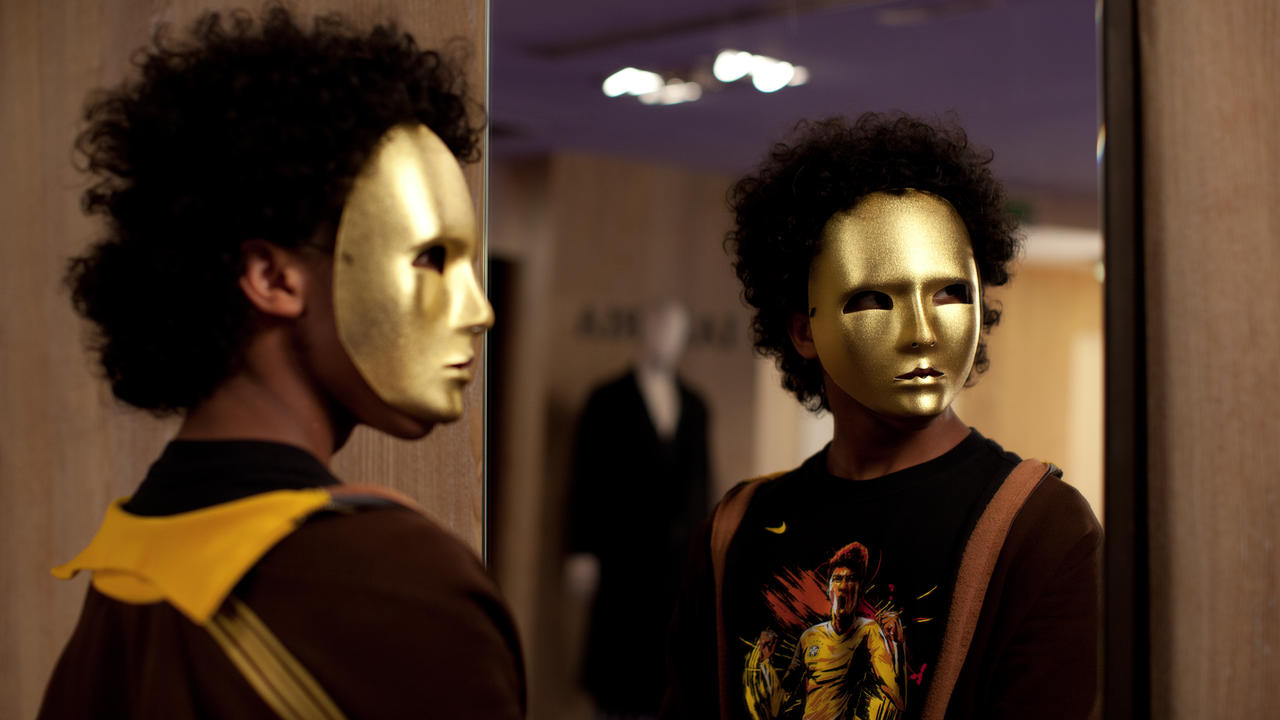It’s an assumption, an article of faith, but it always bears repeating: every best-of list is a subjective snapshot, bound by what we could or would see, the genres to which we gravitate, the last-minute audibles called because we simply can’t bear to leave out a title. The 10 Best Films of 2017 comes with a parenthetical, always — “(for me)”. Anything else is folly.
Looking back now, my cinematic 2017 was full of ghosts and water. Why? As Olivier Assayas notes, cinema is the land of the dead, and in 2017 it wasn’t just people who’d died. There are ghost buildings, ghost commodities, empty malls, abandoned dwellings, a lot of mirrors. There is confinement — in tanks, in bodies, in crowded apartments we can’t leave, in poverty, in the sunken places of our culture. It’s all there on the screen, and on this list.
And so here it is — definitively undefinitive, the best. 2017 was such a good year for film that I could include any of my next 10 picks and feel fine about it: Ma’ Rosa, Lady Bird, Lucky, Karl Marx City, Dunkirk, The Lost City of Z, Casting JonBenet, Okja, The Beguiled, Song To Song. That’s a hell of a list right there.
But it’s not The List. Read on for that, and see you next year.
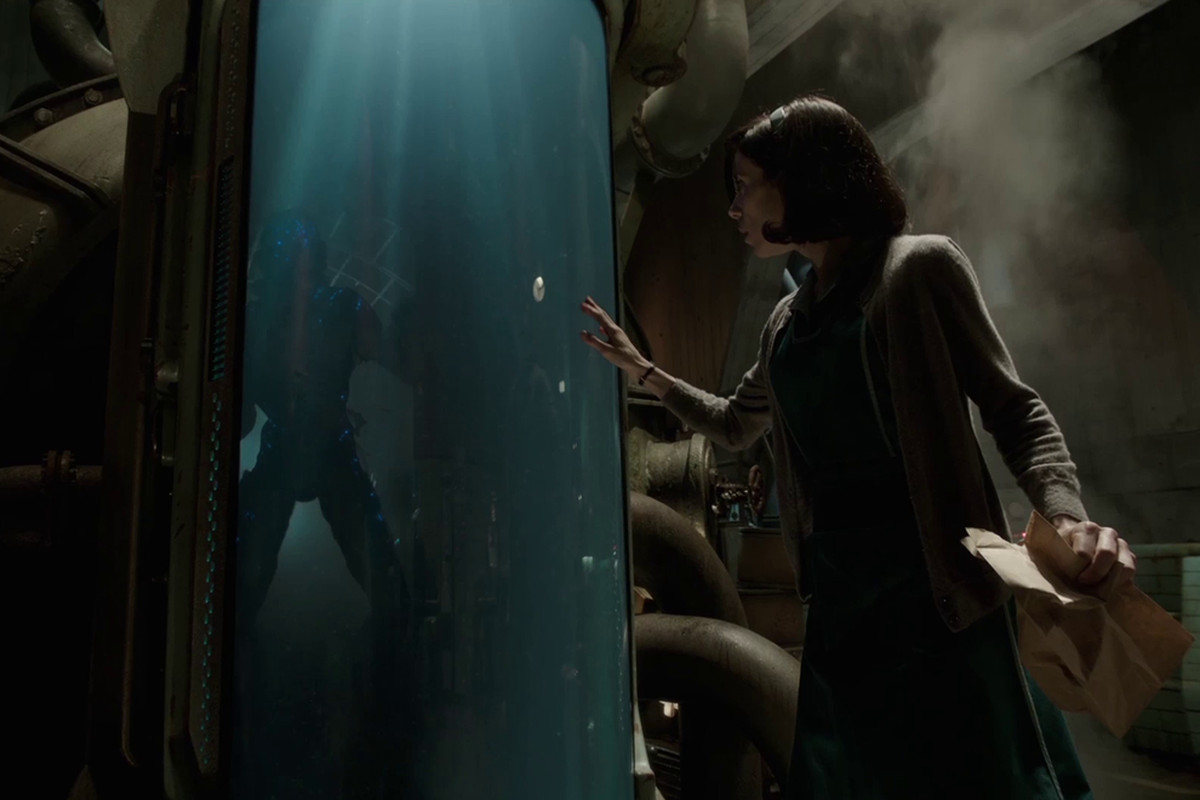
The year’s best rom-com, and a film that foregrounds the incommunicable. Bonus: it’s always nice when movies remember they are made of pictures, which Guillermo del Toro‘s always do.
Sally Hawkins is perfectly cast and nails the part, deploying a charming wordlessness, in service to a film’s conceit rather than plotty affectation. She’s marvelous, and a million people who haven’t fucked a fish-guy (yet) can instantly relate. Early scenes depicting her morning masturbatory routine reveal The Shape of Water‘s ulterior motive — to find and present a rift in our desires, a set of possibilities … and, if possible, upend Creature From The Black Lagoon, kicking the authoritarians’ patriarchy once or twice in the process. Pescaterians might recoil, not to mention anyone hoping for something less slippery, but fans of outcast fairy tales and renegade love stories — Guillermo del Toro people — will rejoice.
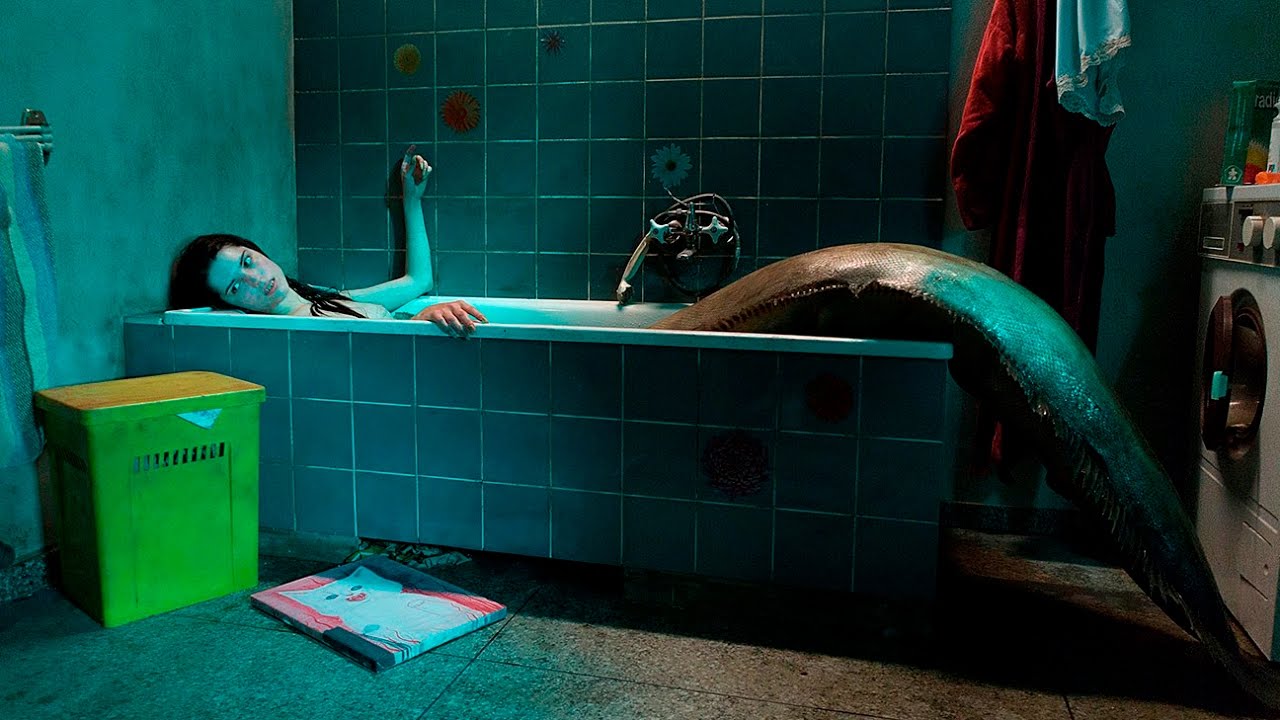 2017 was, among other things, a big year for the Fish-people who live among us, with Agnieszka Smoczynska‘s The Lure providing the more brutal, much weirder flip-side to The Shape of Water‘s gentle fantasy.
2017 was, among other things, a big year for the Fish-people who live among us, with Agnieszka Smoczynska‘s The Lure providing the more brutal, much weirder flip-side to The Shape of Water‘s gentle fantasy.
There are serious and troubling narrative digressions about body dysphoria and Cronenbergian touches throughout, but this is, fundamentally, a horror musical about killer mermaids. A horror musical about killer mermaids. The Lure lives up to that bizarre summary through sheer will and a fierce commitment to its bonkers conceit. (Commentary here.)
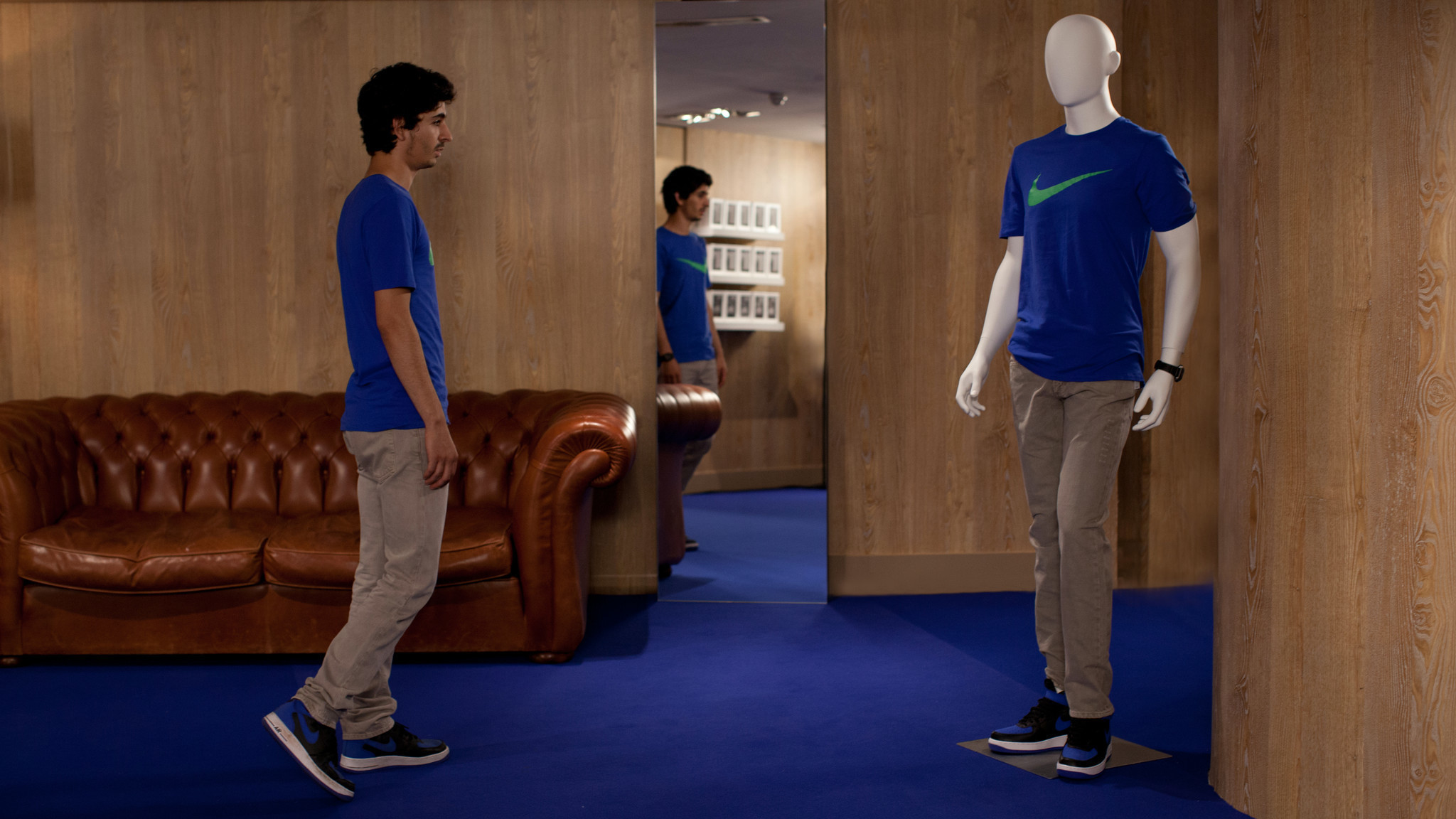 Bertrand Bonello‘s portrait of a group of young terrorists holed up in an empty shopping mall is one of several 2017 entries explicitly about commodity fetishism and surface appeal, weaseling into our sympathies and turning us into aesthetic accomplices. It’s a sharp film that feels as aimless as our protagonists’ outrage, until the method in Bonello’s visual madness starts to emerge.
Bertrand Bonello‘s portrait of a group of young terrorists holed up in an empty shopping mall is one of several 2017 entries explicitly about commodity fetishism and surface appeal, weaseling into our sympathies and turning us into aesthetic accomplices. It’s a sharp film that feels as aimless as our protagonists’ outrage, until the method in Bonello’s visual madness starts to emerge.
Nocturama starts intriguingly wordless and tense, and ends with quiet, shocking violence all the more horrific for being mediated through different surveillance technologies. The narrative is a slow crawl to a meaningless death in a Cathedral to Capitalism, and it might be the most appropriate end-note to 2017. (Commentary here.)
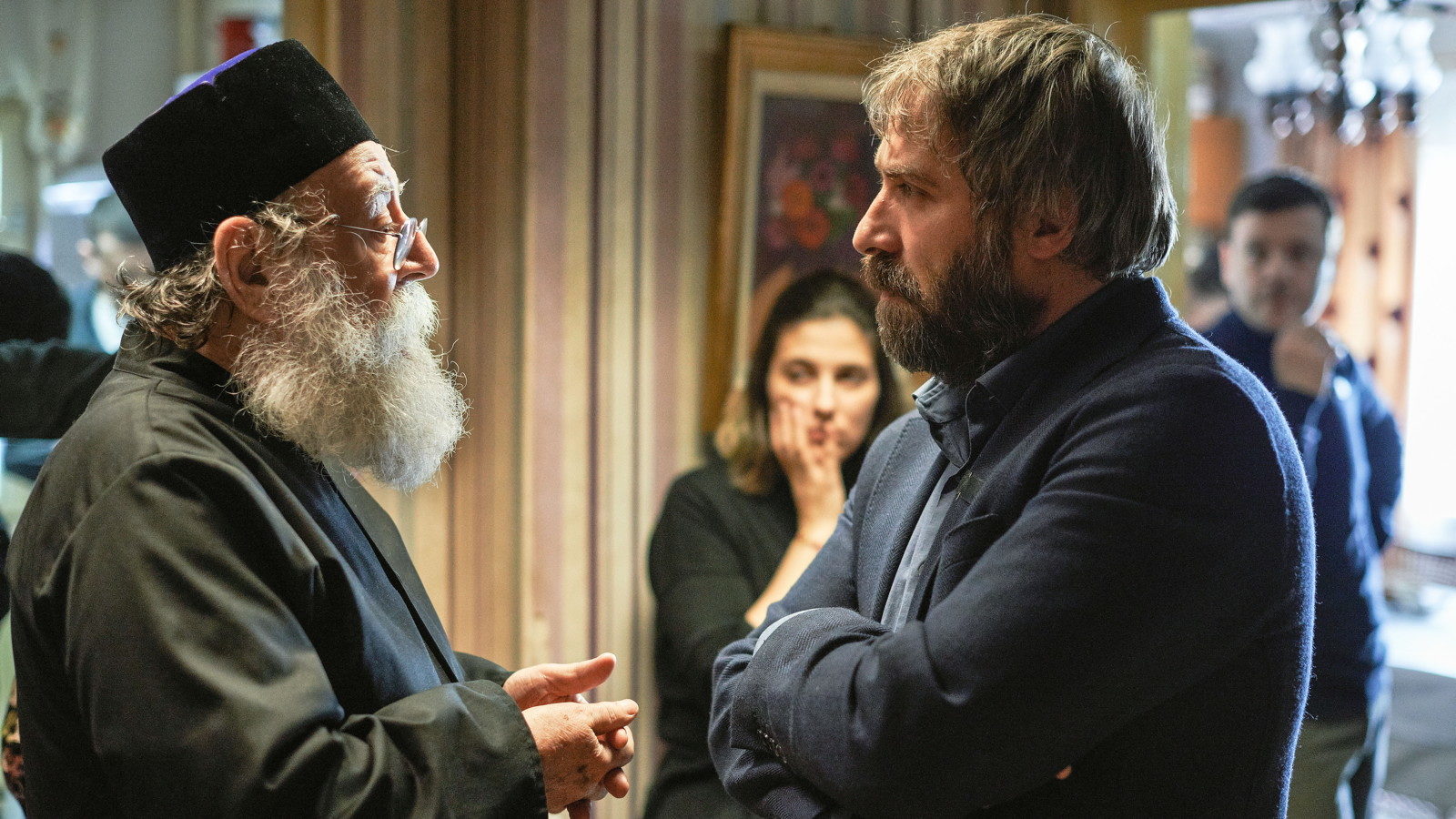 A 3-hour Buñuel-like feast of false starts and farcical interruptions, filled with offhand discussions of Romanian post-Communism, faulty power outlets, religious tradition and modernity, and claustrophobic family dynamics?
A 3-hour Buñuel-like feast of false starts and farcical interruptions, filled with offhand discussions of Romanian post-Communism, faulty power outlets, religious tradition and modernity, and claustrophobic family dynamics?
It would appear that director Cristi Puiu made a film specifically for me. (Review here.)
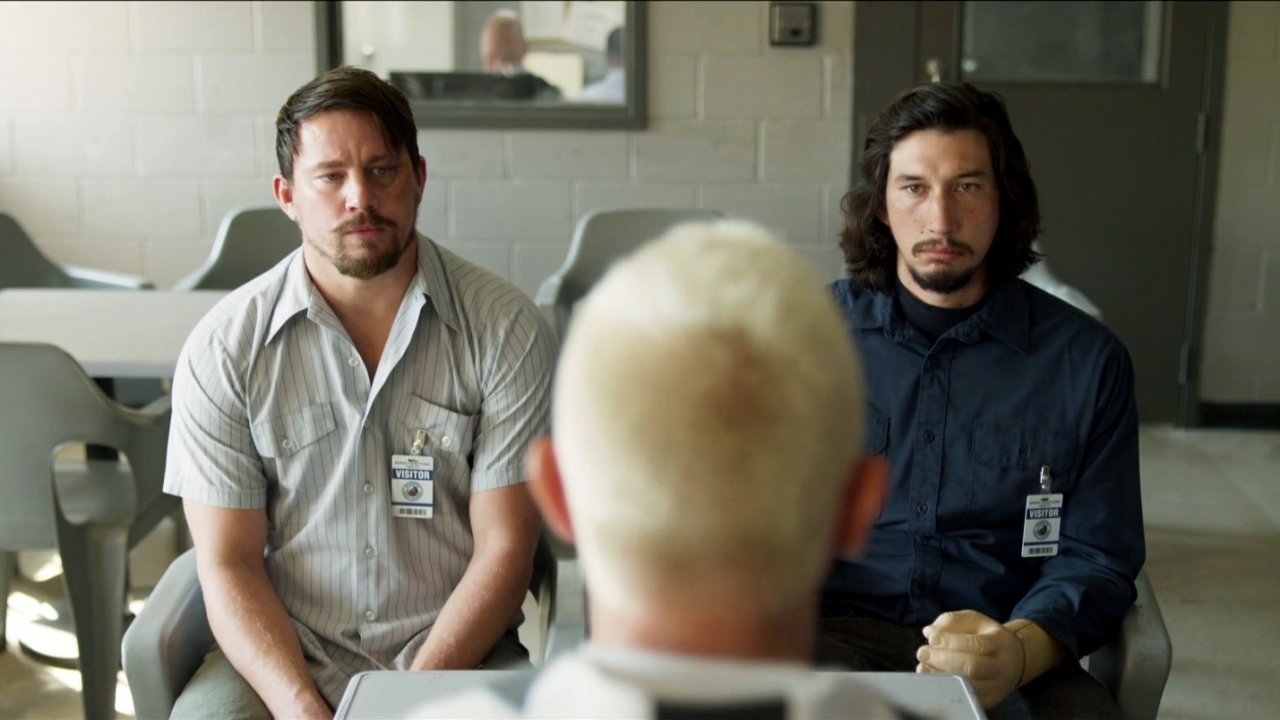 The flat-out most enjoyable, satisfying release of 2017 (and the 3rd and final to prominently feature “Take Me Home, Country Roads”, for reasons no one can adequately explain).
The flat-out most enjoyable, satisfying release of 2017 (and the 3rd and final to prominently feature “Take Me Home, Country Roads”, for reasons no one can adequately explain).
Steven Soderbergh keeps things clicking along like clockwork in this declasse heist flick, cheekily referred to in the film as “Ocean’s 7-11” because of course it is. Magic Mike and Kylo Ren are both great as brothers carrying out that heist, or trying to, and the NASCAR country trappings feel genuine and affectionate. This is just classic populist filmmaking, modest in its ambitions and succeeding at being exactly what it is. (Review here.)
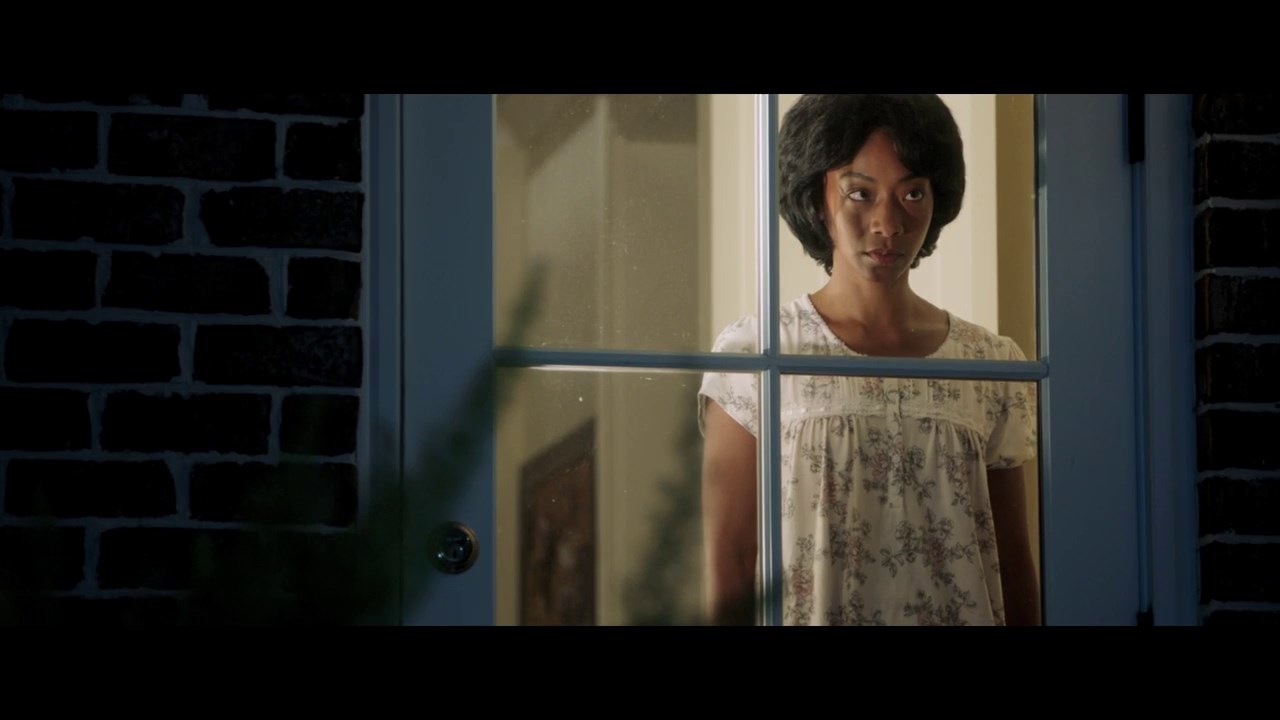 Jordan Peele‘s audacious genre-hybrid debut keeps its sense of humor and its horror savant underpinnings even as it lays bare the real terrors in the heart of liberal white supremacy. (Responding to thinkpiece debates about whether Get Out is a “drama” or a “comedy,” Peele drily countered, “It’s a documentary.”)
Jordan Peele‘s audacious genre-hybrid debut keeps its sense of humor and its horror savant underpinnings even as it lays bare the real terrors in the heart of liberal white supremacy. (Responding to thinkpiece debates about whether Get Out is a “drama” or a “comedy,” Peele drily countered, “It’s a documentary.”)
It’s hard to imagine a more “of-the-moment” production in the foul political wasteland of 2017, but Peele’s best decision was to steer clear of obvious Trumpian villainy and aim directly at us “good white people,” the ones who, in Bradley Whitford‘s memorable line, “would’ve voted for Obama a third time” if we could’ve.
The catalog of microaggressions cascading into aggression-aggression provokes both chills and nervous recognition, and the “sunken place” may have been the single most resonant contribution to our vernacular this year. (Review here.)
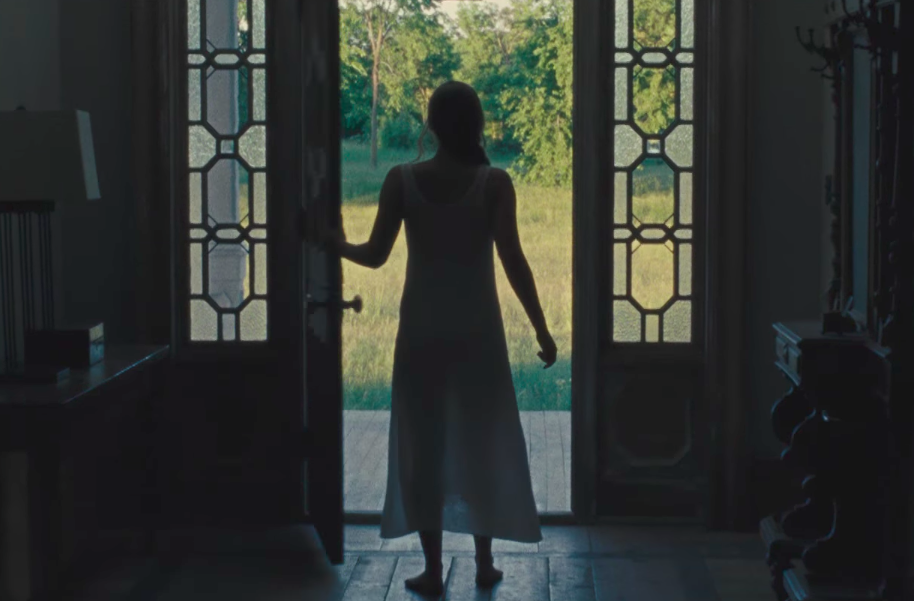 So this is what it looks like when Darren Aronofsky‘s head goes so far up his own ass that it pops back out of his neck again and he just walks around like a normal person.
So this is what it looks like when Darren Aronofsky‘s head goes so far up his own ass that it pops back out of his neck again and he just walks around like a normal person.
Whether that’s a good thing or not is up to the viewer, and viewers had decidedly different responses to the experience. But an experience it definitely is, and mother! is vital, pretentious, infuriating, fascinating, brilliant, almost impossibly wackadoodle filmmaking, stealing wholesale from Repulsion and also The Bible and maybe also from justifiably irritated letters from Aronfsky’s ex-lovers. It absolutely earns its scorn and its praise, which is one of the best things you can say about a film. (Review and commentary here and here.)
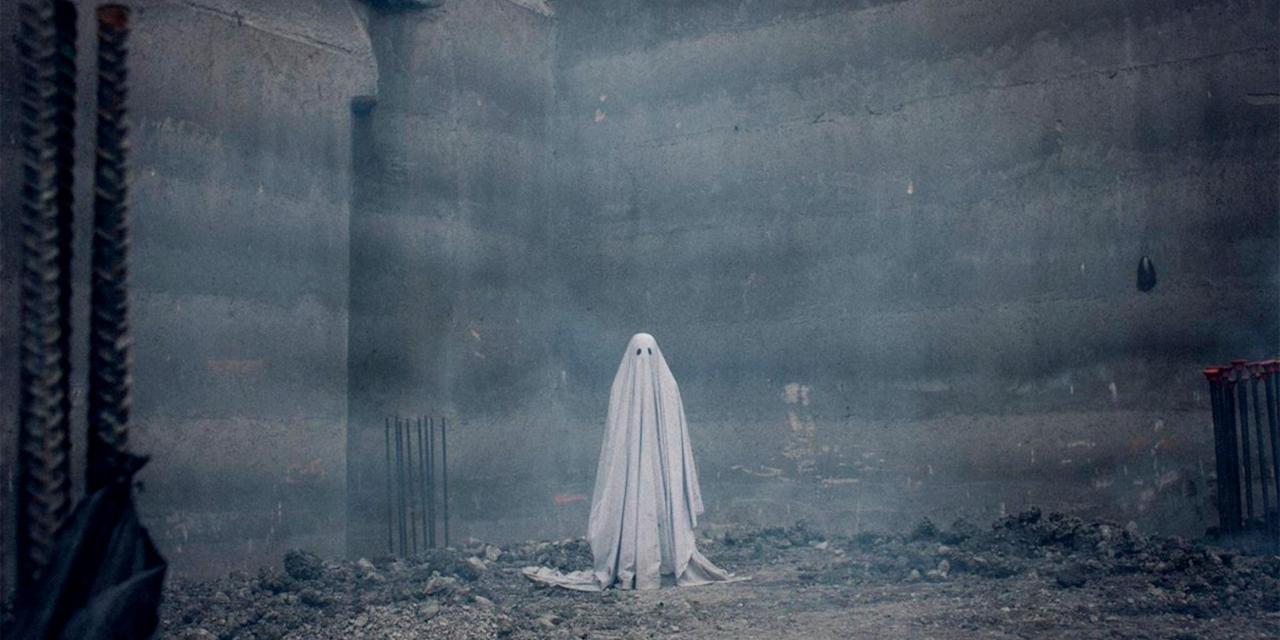 With its self-consciously lo-fi costuming, extended single-take depiction of a woman eating a pie, and the sudden appearance of Will Oldham waxing cosmic and philosophical at some indeterminate dinner table of the future, David Lowery‘s film sets itself up for ridicule. But its sincerity and guilelessness undercut any such attempt; irony has no place here.
With its self-consciously lo-fi costuming, extended single-take depiction of a woman eating a pie, and the sudden appearance of Will Oldham waxing cosmic and philosophical at some indeterminate dinner table of the future, David Lowery‘s film sets itself up for ridicule. But its sincerity and guilelessness undercut any such attempt; irony has no place here.
A Ghost Story is profoundly melancholy and ultimately moving, another 2017 haunted house story that builds something genuinely experimental out of the most basic parts. A fractured narrative and insistent understated score help Lowery set the mood, and we’re off on the kind of cinematic journey we want to immediately return to when it’s through. (Review here.)
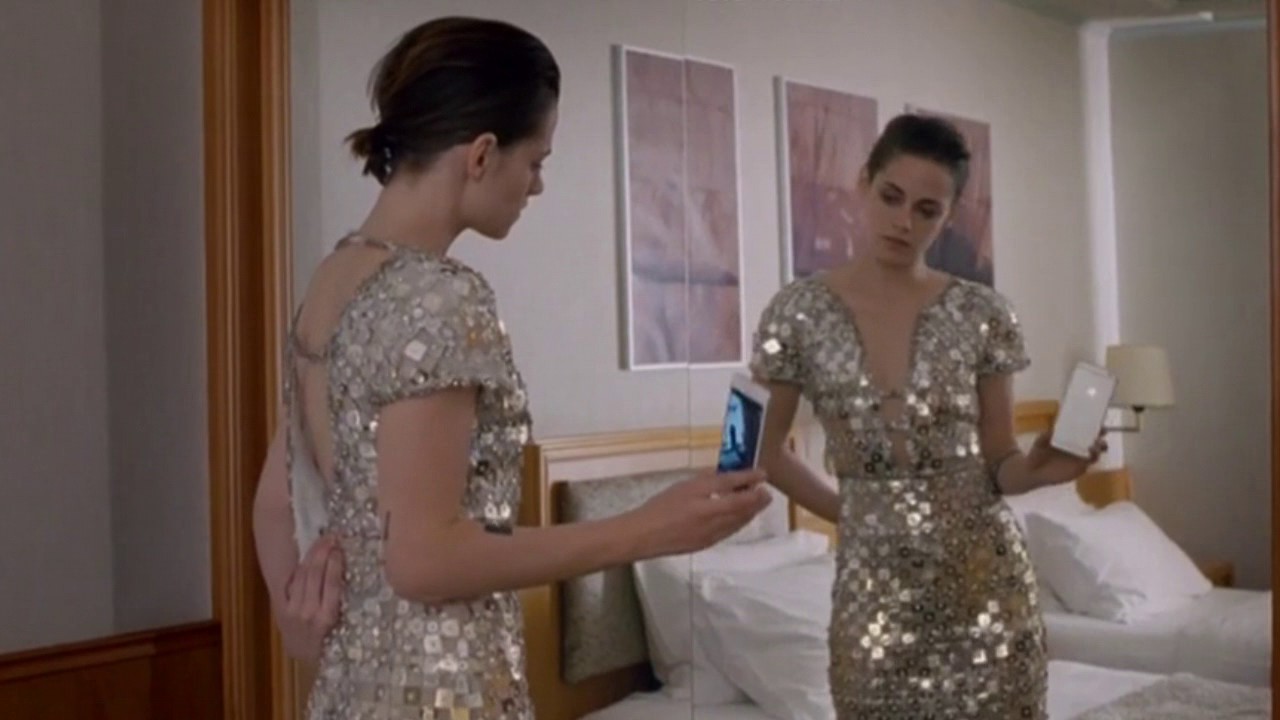 “Film,” Olivier Assayas says, “has always been the land of the dead.”
“Film,” Olivier Assayas says, “has always been the land of the dead.”
He was referring to the moment when the Silent Era stars started dying, and movie fans started living in a graveyard of images, surrounded by the perpetual, ghostly motions of people who weren’t around anymore. It’s a strange thing to imagine an age where almost no one in the movies was dead. It’s a stranger thing to now be surrounded by recent likenesses, to see them continue to live and change. Fred Astaire selling vacuums is one thing: it’s patently ridiculous. Yet we write eulogies on social media, and Facebook sometimes straight up sends you pictures of people you’re mourning (which, by the way, is a really dick move, Facebook).
But it could apply just as easily to his own films. Kristen Stewart’s performance, as a medium trying to make contact with her dead twin brother, is soaked in the most postmodern of spiritual maladies, conjuring ghosts in empty buildings while floating invisibly through the world herself. Personal Shopper is a note-perfect depiction of grief that understands how we live, die, and, maybe, continue on. (Review here.)
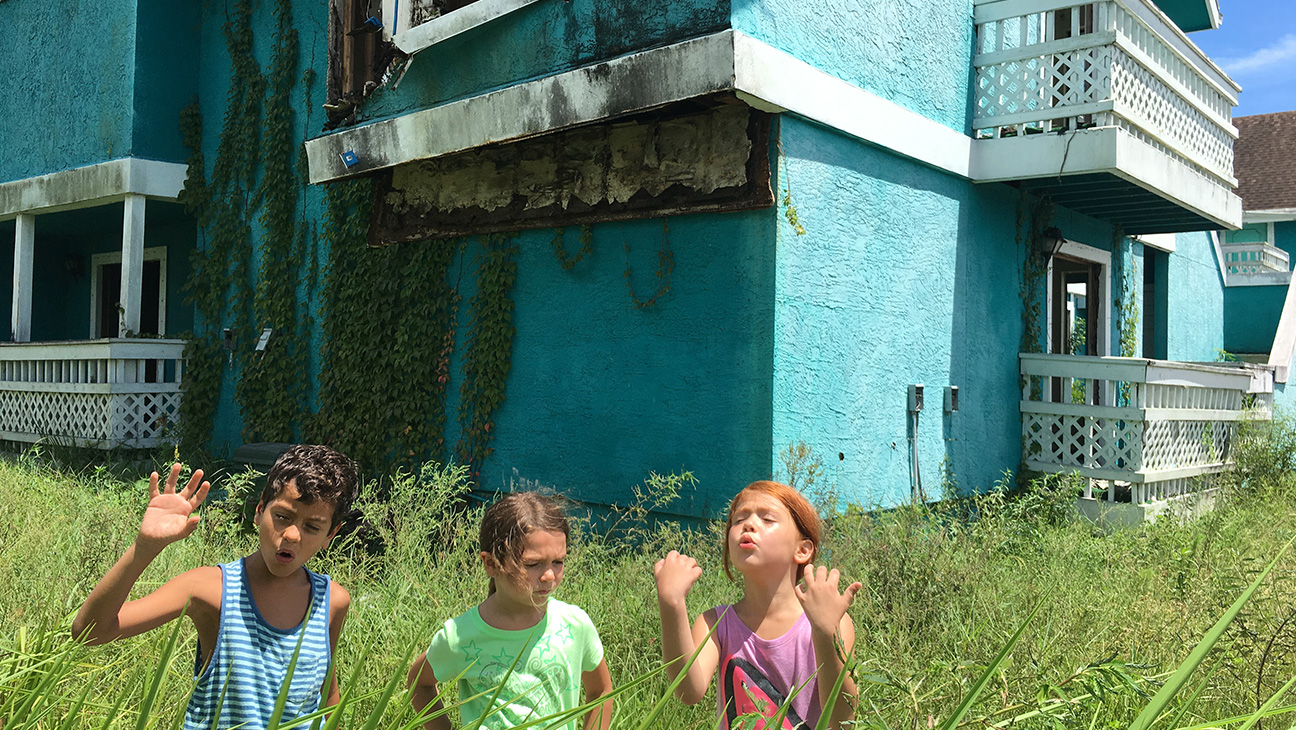 There was no more visceral experience in movie theaters this year than Sean Baker‘s deeply empathetic portrait of life in the shadows of the Magic Kingdom.
There was no more visceral experience in movie theaters this year than Sean Baker‘s deeply empathetic portrait of life in the shadows of the Magic Kingdom.
Every performance is nuanced and finely shaded — Brooklynn Prince‘s, Bria Vinaite‘s, Willem Dafoe‘s, everybody’s. All the right notes are hit, even the problematic dissonances that constitute life as it’s lived. The saturated colors pop, accentuating the film’s child-eye view of a world filled with knock-off motels, parking lots, abandoned houses, creepy old men, ice cream shops, johns, marks, sunsets, purple paint, new friendships, and impossible dreams of escape. Baker effortlessly brings this place to weird life, with a simmering outrage just out of the frame. It’s wonderful filmmaking, the best of the year. (Review here.)

